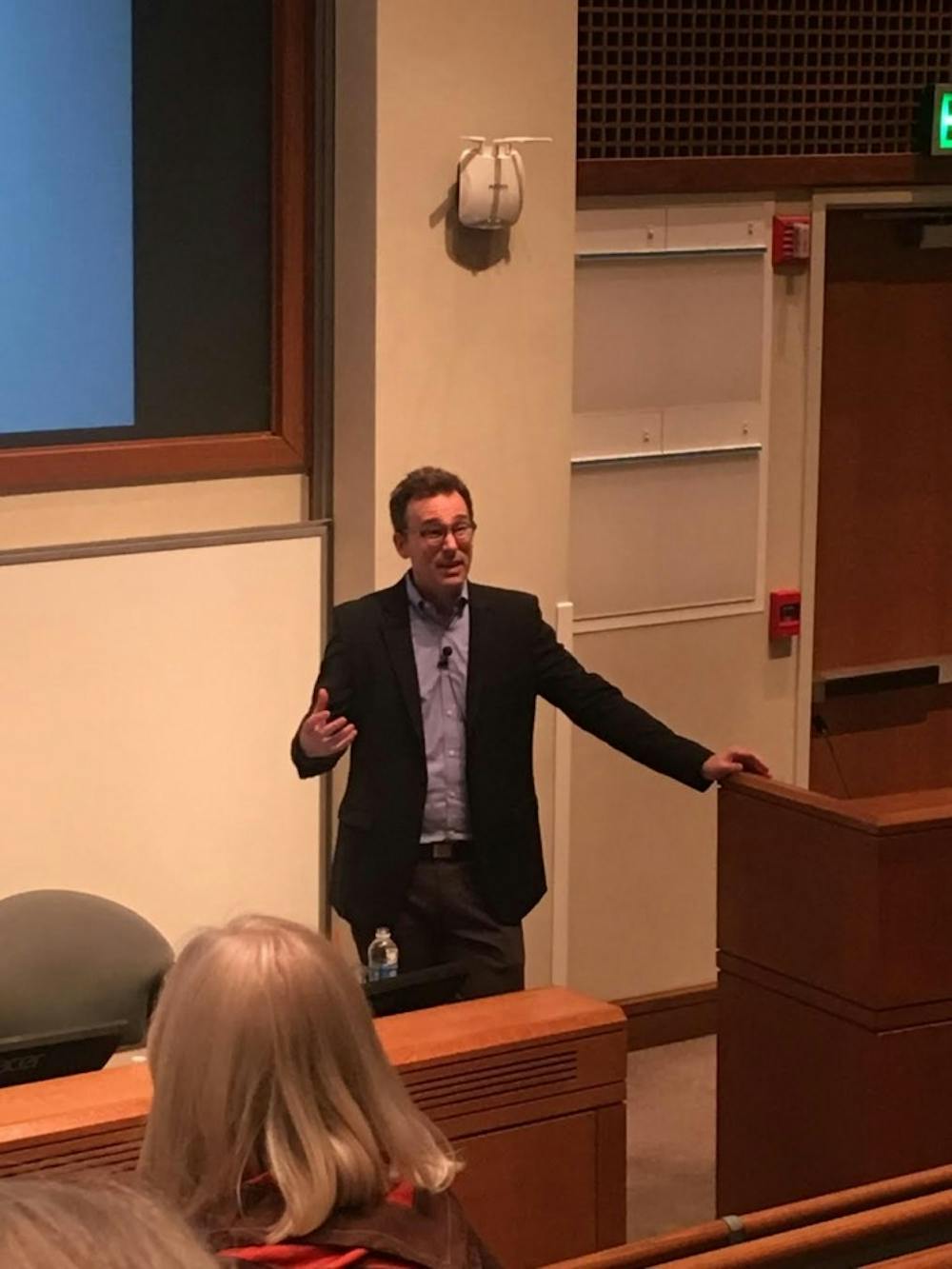The Medical Center Hour’s annual A John F. Anderson Memorial Lecture Wednesday featured Brandon Butler, the Director of Information Policy for the University Library. Butler discussed the role of fake, “predatory” journals and conferences in the modern academic world of medical research. He stressed the relevant consequences of these predatory publishers and deemed them a distraction, suggesting that academic research faces crucial threats as it grapples with the need to share knowledge quickly and honestly.
What Butler refers to as “predatory publishing” may be defined as scam journals and academic conferences designed to share loosely peer-reviewed information very quickly for considerable fees.
“These publishers may claim impact factors, and they tout editor board leaders stacked with leaders in your field,” Marcia Day Childress, program moderator and Assoc. Prof. of Medical Humanities, said. “All they require of you is a modest fee and author's processing charge in order for them to deliver the lifeblood of any academic career — a peer-reviewed publication.”
Impact factors refer to the average number of instances an article from a certain journal is cited by Journal Citation Reports, a tool which critically assesses journals.
Predatory publishing manifests in various guises. Childress explained that like most individuals in academia, her exposure to predatory publishing occurs almost daily.
“Just last week, for example, one of my journal invitations ostensibly came from Monica Lewinsky,” Childress said.
Frustrated, academic researchers have tested the limits of predatory publishers over the years. In October 2016, Christoph Bartneck, Assoc. Prof. at the Human Interface Technology laboratory at the University of Canterbury in New Zealand, submitted a paper to a fraudulent conference — the International Conference on Atomic and Nuclear Physics — entirely written by the iOS autocomplete function. Within a few hours, the paper was accepted.
Predatory publishers, Butler affirms, are fraudulent. Often, these fake journals are comprised of fake editors and assert false impact factors.
“If you publish in one of these journals knowingly, then you're defrauding your institution,” Butler said.
Butler suggests a possible explanation for falling victim to predatory publishers is the “publish-or-perish” outlook in academia. Many researchers advance in the academic marketplace by publishing heaps of papers, as quantity published has become akin to academic productivity, Butler explained. As a result, researchers publish papers after collecting minimal data, include multiple authors and reframe research questions.
“We have to get those lines on our CVs to get tenure,” Butler said.
Despite their destructive nature, predatory journals are not considered a major problem in the U.S. As BMC Medicine reported in 2015, Asia and Africa contribute over 75 percent of the fraudulent publishers and authors, while the U.S. contributes only six percent.
To avoid falling for fake publishers, Butler highlighted several resources that help assess the legitimacy of journals. Notably, thinkchecksubmit.org offers a checklist of tip-off factors. Various publisher associations, such as the Committee on Publication Ethics and the Directory of Open Access Journals also aim to separate authentic journals from fraudulent journals.
Many predatory publishers are conducted under an open-access business model, meaning the journals are free online to the public. Buter noted there is a stigma in academia against publishing to open-access mediums, as they are often associated with fraud and low-quality research.
“It’s hard to disentangle the real from the crumby and the honorable from the scam, but we know that open access journals can be high quality and high impact,” Butler said. “Some of the highest quality and the highest impact in a lot of fields are open access journals, including medicine.”
Over the past 18 years, journal prices have increased 273 percent, and while the top five journal publishers accounted for 20 percent of papers in 1970 — they now account for 50 percent of papers. The University Library spends over 43 percent of the collections budget on just four top publishers.
“The real predation in publishing is the cost of access,” Butler said.
In order to diminish the issue of predatory publishers, Butler suggested that academic faculty must be convinced that quality surmounts quantity, and open-access platforms may hold the answers.
“We can decouple prestige from cost,” Butler said. “We could publish things very efficiently, make them free to the reader, cheap to the author or free to the author if we take some of what institutions are spending on publishing and instead spend that on the infrastructures that support publishing.”
Butler said the library system is investigating bringing open access journal platforms to the University.







